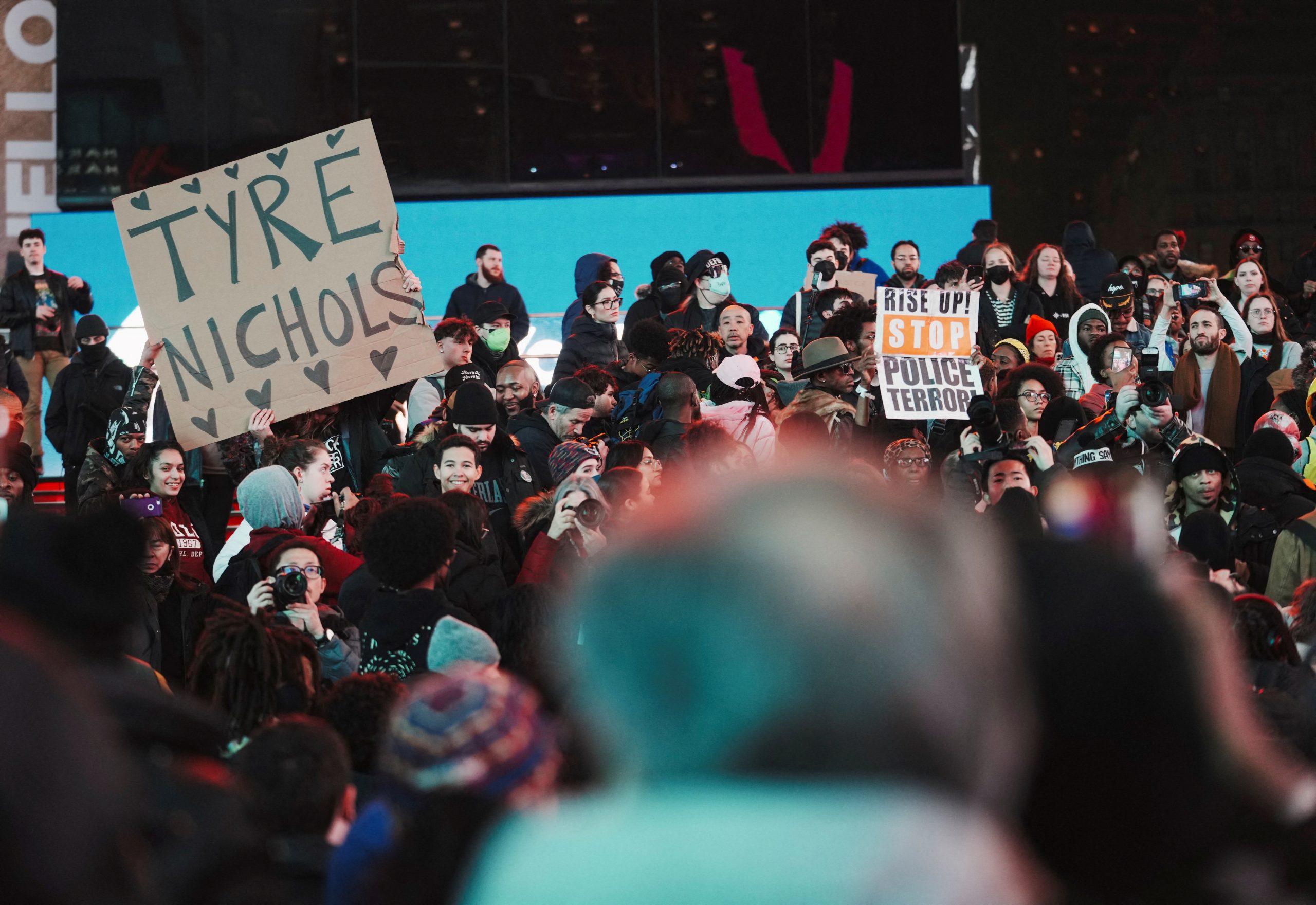
Willie R. Tubbs, FISM News
[elfsight_social_share_buttons id=”1″]
As morning breaks on a new week, Memphis and the nation continue to grapple with the aftermath of the death of Tyre Nichols and the subsequent release of the video footage of his violent attack at the hands of five police officers.
Nichols, 29, died after three days in hospital in early January following what began as a traffic stop. All six of the people involved in the incident, Nichols and the five men who attacked him, are black.
“You’re going to see a disregard for life, duty of care that we’re all sworn to, and a level of physical interaction that is above and beyond what is required for law enforcement,” the Memphis Commercial Appeal quoted Police Chief C.J. Davis as saying about the video footage. “I’m sure as I said before that individuals watching will feel what the family felt. If you don’t, then you’re not a human being. And we all are human beings.”
All five of the now-former-officers have been charged with second-degree murder and the so-called “SCORPION Unit” to which they belonged has been disbanded.
“The officers currently assigned to the unit agree unreservedly with this next step,” the Memphis Police Department said in a statement. “While the heinous actions of a few [cast] a cloud of dishonor on the title SCORPION, it is imperative that we, the Memphis Police Department take proactive steps in the healing process for all impacted.”
— Memphis Police Dept (@MEM_PoliceDept) January 28, 2023
The SCORPION Unit – the acronym stands for “Street Crimes Operation to Restore Peace in Our Neighborhoods” – was created in 2021 as part of Memphis law enforcement’s efforts to address high-crime areas by sending teams of four officers to hot spots where gang activity, drug dealing, and auto thefts were most frequent.
ABC News, citing Memphis Mayor Jim Strickland, reports SCORPION had netted 390 felony arrests and seized $103,000 in cash, 270 vehicles, and 253 weapons over four months in late 2021 and early 2022. However, even though the unit proved a measurable deterrent to crime, it had faced allegations of using unnecessary force to carry out its directive.
In the wake of Nichols’ death, those criticisms grew far louder.
RENEWED CALLS FOR FLOYD LEGISLATION
Over the weekend, protestors demonstrated in cities across the nation to demand social and legislative changes that they say will decrease the chances of police overreach, particularly in instances involving law enforcement encounters with people of color.
Ben Crump, one of the attorneys representing the Nichols family, is pushing for Congress to pass the George Floyd Justice in Policing Act.
“Shame on us if we don’t use his tragic death to finally get the George Floyd Justice in Policing Act passed,” Crump said during an appearance on CNN’s “State of the Union.”
During an appearance on ABC, Crump stated that Nichols’ mother believed “in her heart Tyre was sent here for an assignment and that there is going to be greater good that comes from this tragedy.”
Democrats and Republicans were unanimous in their agreement that the five officers acted well beyond the bounds of what is acceptable, but the two parties have not reached a consensus on what new laws and reforms, if any, should result.
“As those who were blessed to call Mr. Nichols a family member, friend, or neighbor mourn, we must commit to pursuing justice for his death, which feels all too familiar for far too many Americans, especially Black Americans,” Sen. Dick Durbin (D-Ill.) said in a statement. “Mr. Nichols’ killing is a violation of the social contract between law enforcement and the people they are sworn to protect—and people are rightfully demanding accountability, corrective action, and justice.”
Rep. Jim Jordan (R-Ohio) empathized with the Nichols family and was heavily critical of the officers, but told NBC’s “Meet the Press” that it was a mistake to rush through legislation.
“These five individuals did not have any respect for life,” Jordan said. “And again, I don’t think these five guys represent the vast, vast majority of law enforcement. But I don’t know if there’s anything you can do to stop the kind of evil we saw in that video.”
Sen. Tim Scott (R-S.C.), who is black, indicated he wanted to see some sort of reform, although he did not indicate if this would take the form of the proposed law that bears Floyd’s name.
“We have been here too many times before,” Scott said in a statement. “We cannot continue down this path. America cannot stand silent. This was a man beaten by the power of the state. We must unite against this blatant disregard for human life, especially from those we trust with immense power and responsibility.”
